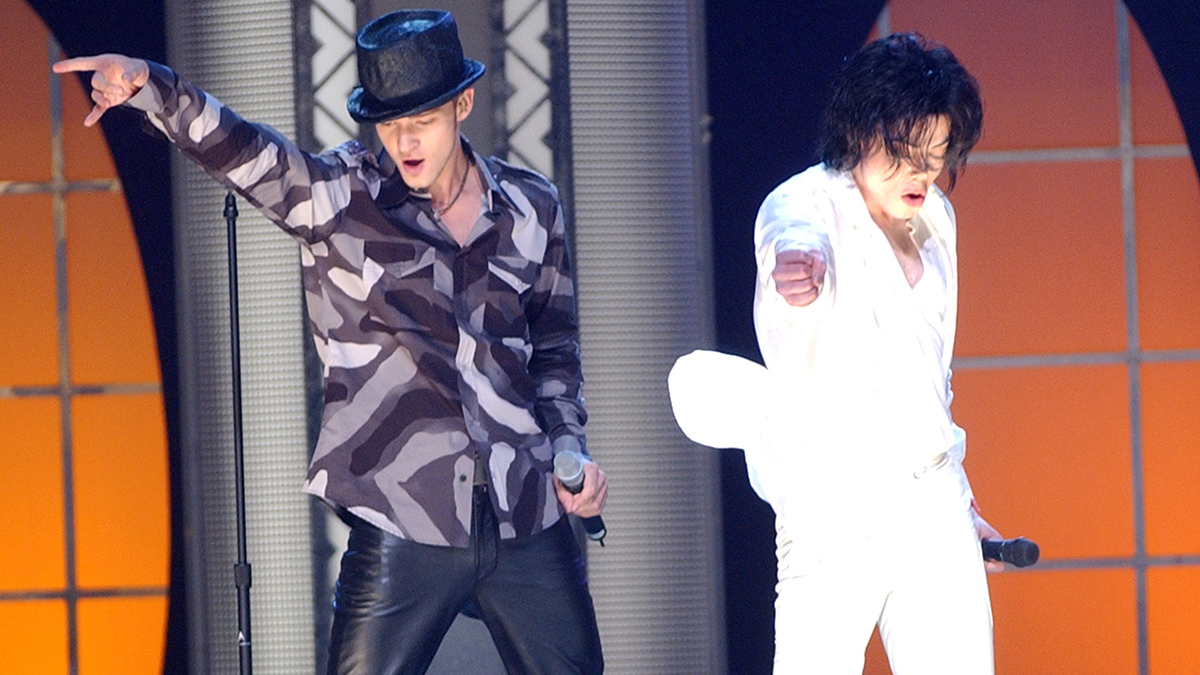“He felt it was too generic at the time”: Producer Rodney Jerkins on why Michael Jackson turned down the Neptunes songs that eventually went to Justin Timberlake
“If I would have just hopped on the drum set and just started playing, he would have been like, ‘Nah, I did that with Billie Jean’”

It’s long been rumoured that the songs that were written and produced by Pharrell Williams and Chad Hugo - AKA The Neptunes - for Justin Timberlake’s 2002 debut album, Justified, were originally intended for Michael Jackson.
Now, in a new interview with The Almanac of Rap, producer Rodney Jerkins - who worked on Jackson’s 2001 album, Invincible - has been offering his take on why The King of Pop turned those Neptunes tunes down.
Jerkins already knew Williams - both producers were mentored by new jack swing legend Teddy Riley, who produced a large portion of Michael Jackson’s 1991 album, Dangerous - and it seems that, once Williams knew that Jerkins was in the studio with Michael working on what would turn out to be Invincible, he seized his chance.
“Pharrell gave me the demos to play to play for Michael,” Jerkins remembers. “Pharrell called me up and said, ‘Yo, you really working?’ I said, ‘Yeah, bro, working with Mike’. [He said] ‘Yo, yo, please. Can I give you a CD?’ I said, ‘I got you’. He gave me the CD. I gave Mike the CD to listen to. I'm the one that gave it to Michael to listen to.”
The demos that Jerkins is talking about are believed to be of the songs that would eventually be recorded by Timberlake: the likes of Senorita, Rock Your Body and Like I Love You, all of which you can imagine being sung by Michael Jackson.
That’s high-grade material in anyone’s book, so why did Jackson say no?
“He felt it was too generic at the time,” says Jerkins. “What made Mike tick is when he hears sounds that no one else uses. I had to learn that, right? Because he used that same phrase even with me. Like I would play him a track I would think was the hottest: ‘that’s too generic’ [he would say].
Want all the hottest music and gear news, reviews, deals, features and more, direct to your inbox? Sign up here.
“And then, as I start to work with him, I'm like, OK, so the normal bass sound that I would use, I need to take and sample a motorcycle revving up and incorporate that into the bass somehow. And then he's like, this [sits up and pays attention]. Then it becomes interesting to him. If he doesn't hear anything that has ear candy that's really different, he not going to really rock with it.”
Jackson’s desire to sound different, it turns out, led Jerkins to some unusual places.
“You have no idea,” he remembers. “I spent hours in the junkyard with my cousin. Mike told me to go to the junkyard and hit things and and I'm going to the junkyard and we’re hitting things and sampling things.
“I’d never been in New York City, and me and Michael was together in New York City, going through the city, and there was this, like, crane sound. It was like coming down, and Michael heard it and said, ‘I need you to sample that’. And I'm like, on the way to the studio, I had to go borrow a Sony digital recording DAT machine from the studio, go back to that location - hopefully they're still there - and sample that sound.”
And sometimes, says Jerkins, the requests could be more abstract. “I remember one time I was doing a song - doing an idea with him, rather - and he said he wanted it to sound like electricity. And I'm like, ‘well where we gonna get that from?’ And I had to imagine things. I remember I took a light bulb, one of my one of my favourite snares - and my engineer at the time, Jean-Marie Horvat, he can vouch for this - we took a light bulb and bust that joint and put it on with the snare, and it just gave us this like sound. It was like a pop sound.”
In the case of those Neptunes songs, then, perhaps it wasn’t so much that Jackson didn’t like them, but that, if he had recorded them, he’d have felt like he was repeating himself.
“If I would have just hopped on the drum set and just started playing, he wouldn't mess with that,” says Jerkins. “He would have been like, ‘Nah, I did that with Billie Jean’. He would have said that. Because Mike was an inventor. In his mind. He thought he was, you know, he was all about invention. So it was like, go invent some things.”



I’m the Deputy Editor of MusicRadar, having worked on the site since its launch in 2007. I previously spent eight years working on our sister magazine, Computer Music. I’ve been playing the piano, gigging in bands and failing to finish tracks at home for more than 30 years, 24 of which I’ve also spent writing about music and the ever-changing technology used to make it.
